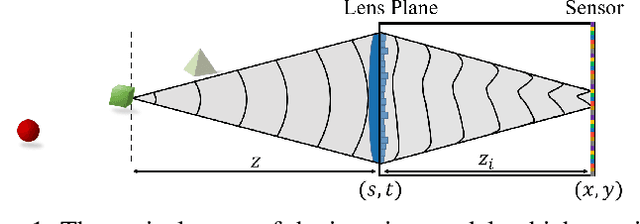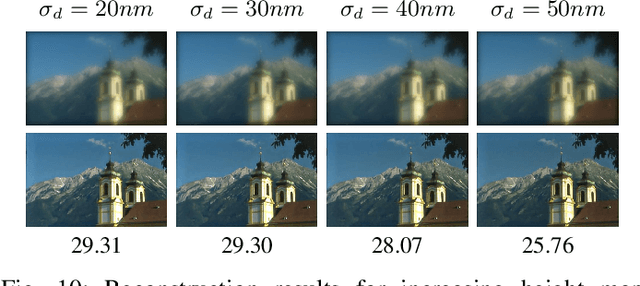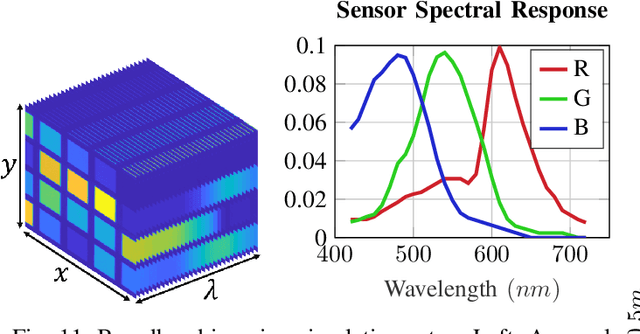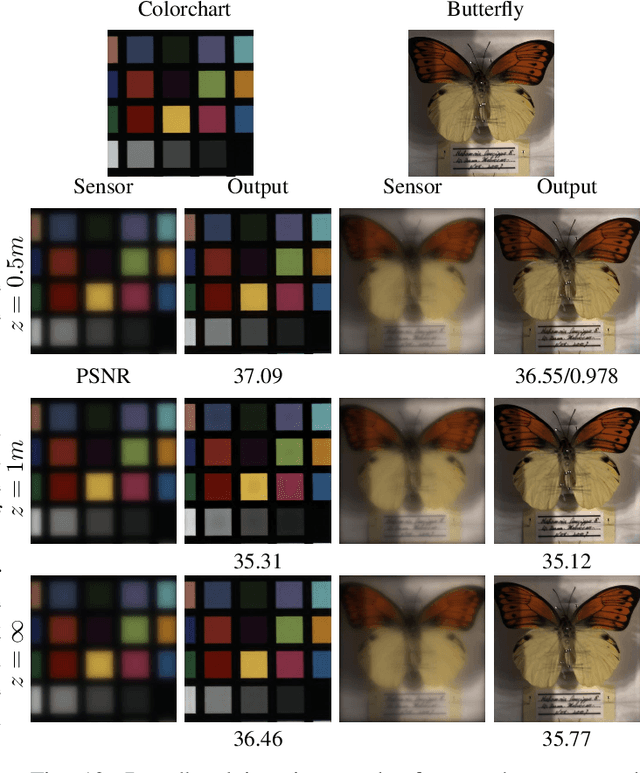Learning Wavefront Coding for Extended Depth of Field Imaging
Paper and Code
Dec 31, 2019



The depth of field constitutes an important quality factor of imaging systems that highly affects the content of the acquired spatial information in the captured images. Extended depth of field (EDoF) imaging is a challenging problem due to its highly ill-posed nature, hence it has been extensively addressed in the literature. We propose a computational imaging approach for EDoF, where we employ wavefront coding via a diffractive optical element (DOE) and we achieve deblurring through a convolutional neural network. Thanks to the end-to-end differentiable modeling of optical image formation and computational post-processing, we jointly optimize the optical design, i.e., DOE, and the deblurring through standard gradient descent methods. Based on the properties of the underlying refractive lens and the desired EDoF range, we provide an analytical expression for the search space of the DOE, which helps in the convergence of the end-to-end network. We achieve superior EDoF imaging performance compared to state of the art, where we demonstrate results with minimal artifacts in various scenarios, including deep 3D scenes and broadband imaging.
 Add to Chrome
Add to Chrome Add to Firefox
Add to Firefox Add to Edge
Add to Edge